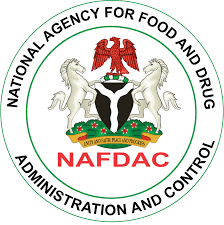By Nkechi Eze
Nigeria has once again secured a place among leading nations in the regulation of medicines and vaccines, as the World Health Organization (WHO) has officially reaffirmed the country’s attainment of Maturity Level 3 (ML3) status, effective June 30, 2025.
The recognition follows a rigorous re-benchmarking process carried out by WHO in Abuja and Lagos between November 25 and 29, 2024, along with five follow-up Institutional Development Plan (IDP) meetings held from February to May 2025. These sessions assessed the progress made by the National Agency for Food and Drug Administration and Control (NAFDAC) and the Pharmacists Council of Nigeria (PCN) in meeting all the critical recommendations issued during the previous evaluation.
With all key recommendations now fully addressed, WHO has confirmed that NAFDAC operates a stable, well-integrated, and functional regulatory system for medicines and vaccines, a crucial requirement for countries aiming to manufacture vaccines locally. Notably, NAFDAC and PCN remain the first National Regulatory Authority (NRA) in Africa to maintain the ML3 status, cementing Nigeria’s position as a continental leader in regulatory excellence.
Maturity Level 3 status involves compliance with approximately 260 sub-indicators and over 800 recommendations, each of which must be met to ensure that the regulatory body functions effectively in safeguarding public health. The re-benchmarking process is an evidence-based performance audit designed to verify that a regulatory agency is maintaining these high standards.
In addition to consolidating the country’s reputation for strong health regulation, the achievement brings Nigeria a step closer to reaching Maturity Level 4 (ML4), the WHO’s highest regulatory rating, which has 57 indicators, of which 27 have already been met. ML4 status would qualify Nigeria for designation as a WHO-Listed Authority (WLA), the new global benchmark for Stringent Regulatory Authorities, enabling local manufacturers to market NAFDAC-approved medical products internationally without additional regulatory hurdles.
The sustained ML3 rating is a boost not only for Nigeria’s public health system but also for the confidence of consumers in the safety and quality of NAFDAC-approved medicines and vaccines. It also holds wider economic implications, paving the way for increased pharmaceutical production, export opportunities, job creation, and improved investor confidence.
NAFDAC has hailed the achievement as a Renewed Hope milestone in Nigeria’s journey towards universal health coverage, attributing the success to the dedication, technical expertise, and resilience of its staff nationwide, as well as the steadfast collaboration of its partners at the PCN. This recognition, the agency noted, is a testament to Nigeria’s growing capacity to meet international health standards while safeguarding the well-being of its citizens.














